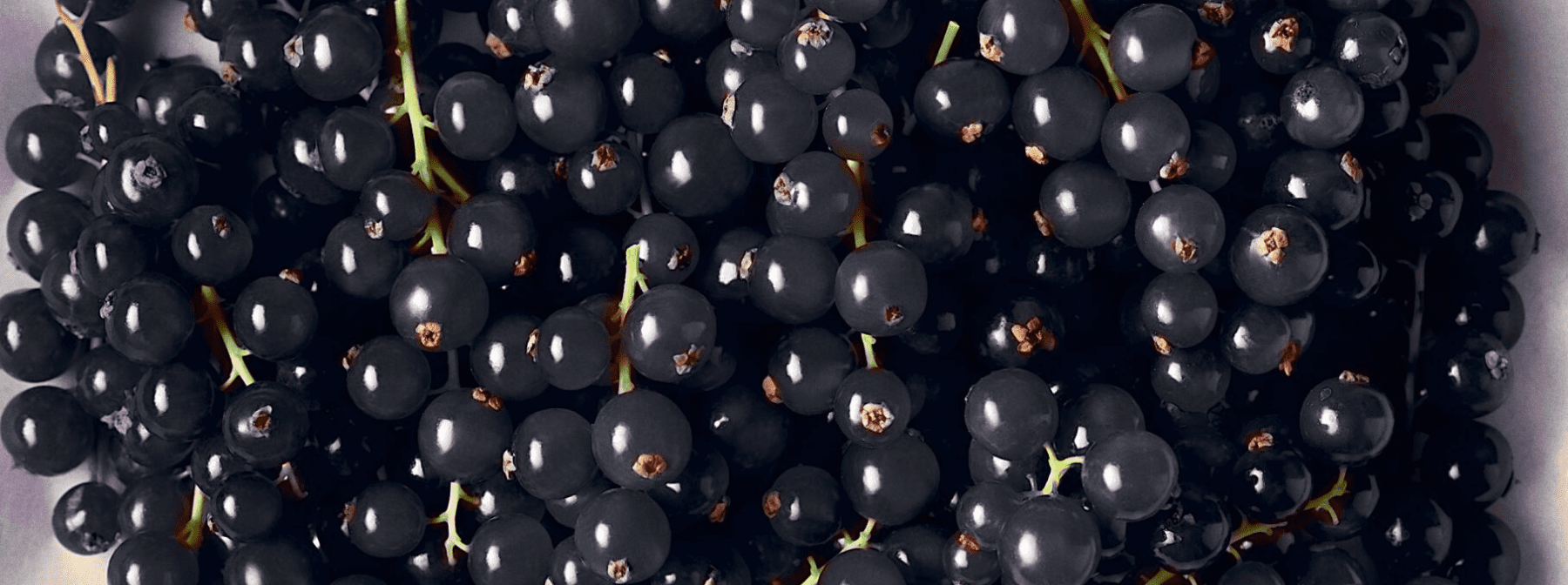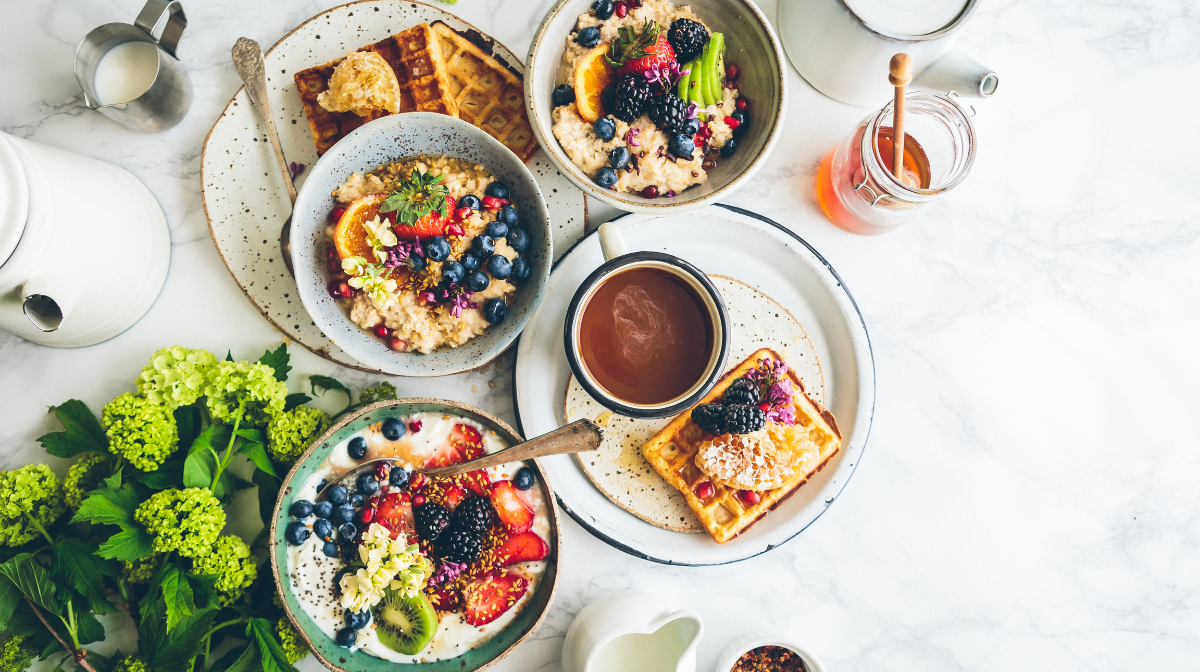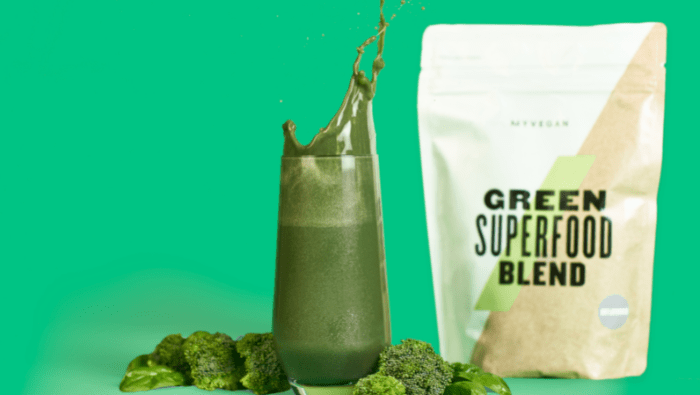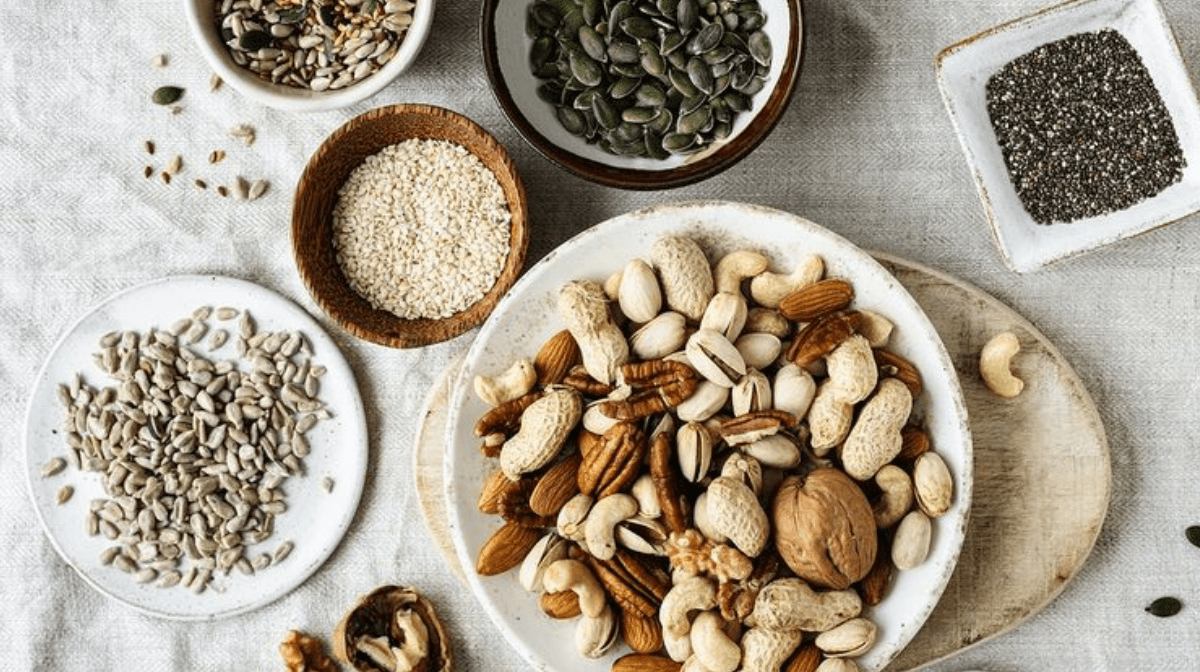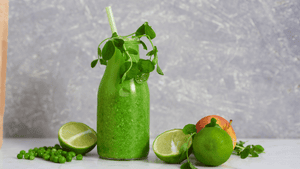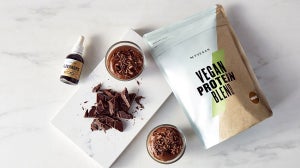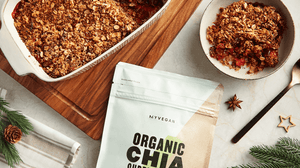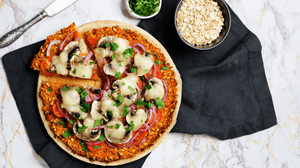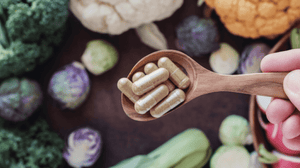
Having a healthy diet is one of the cornerstones of a well-functioning immune system.
Food groups such as wholegrains, fruits, vegetables and spices provide your body with vitamins, minerals, fibre and key plant chemicals like flavonoids.
These chemicals found in whole plant foods may help our bodies fight inflammation, boost our immune cells and help our bodies recover.
Some of these foods have particularly high amounts of these nutrients – here are the top 20 to add to your diet for an immunity boost. Read on to find out more about each of these foods and how they help your immune system.
1. Turmeric
Turmeric is a spice that has been used for thousands of years and is found in many curry spice mixes.
Research has shown that turmeric has antioxidant and anti-inflammatory effects that can benefit recovery. Enhanced recovery can be useful to lower stress and strengthen our immune system13.
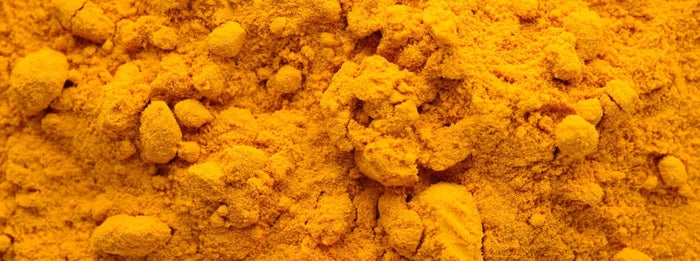
2. Ginger
Ginger can be consumed in a variety of ways such as ginger shots, powdered, in a gummy, or raw.
Like turmeric, ginger has many antioxidant compounds that aid our ability to handle inflammation and support immune functioning 5.
You can find ginger shots in most supermarkets and health shops now, but did you know they're super easy to make at home too? Try this recipe from Leila Hannoun for a fiery immunity boost:
3. Blueberries
Blueberries are rich in vitamins and plant chemicals (phytochemicals) that help support immune function. Not to mention, they're also low calorie and have a refreshing amount of water per serving.
Inflammation can be caused by an overactive immune system. However, the nutrients in blueberries can help create an internal environment that prevents weak immunity and chronic diseases12.
Research has also found that antioxidants found in blueberries can upregulate anti-bacterial activity, which supports our immune function 15.
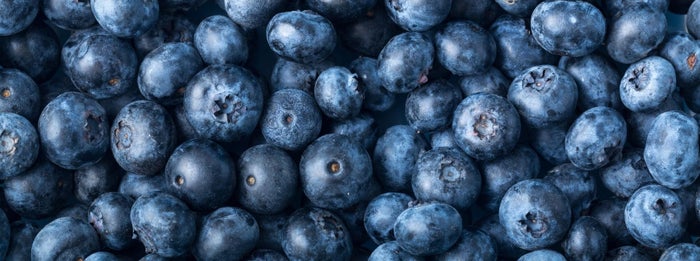
4. Kiwi Fruit
Nowadays, kiwifruit can be bought in most supermarkets. The benefits of kiwifruit come from its fibre content, rich micronutrient profile and antioxidant effects14. They're especially high in vitamin C, an essential micronutrient for keeping your immune system running smoothly.
5. Chia Seeds
Chia seeds are a great source of vegan protein, fibre and omega-3 fatty acids. In addition, they provide antioxidants and even boost markers of healthy immunity4.
Chia seeds can be added to cereals, oats or even in salads – this makes them an extremely versatile way to enhance your healthy diet.
6. Oats
Oats are a high-quality wholegrain carbohydrate that contain a healthy amount of fibre, minerals and protein per serving.
One significant immune boosting property of oats are beta-glucans (a type of soluble fibre) which have been found to stimulate the immune system8.
The minerals found in oats such as zinc, iron, copper and selenium are also helpful in supporting our immune functioning and essential to a healthy diet.
7. Bell Peppers
Bell peppers are a great source of Vitamin C and protective plant chemicals that are needed for optimal health and strong immunity.
Depending on the maturity of a bell pepper, they can be green, yellow, orange or red. Red bell peppers may be the best choice as they contain higher amounts of Vitamin A. Red bell peppers also seem to have a positive effect on our immunity and can help maintain a healthy gut microbiome17.
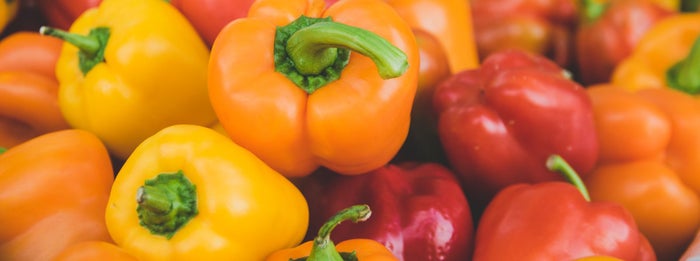
8. Elderberries
Elderberries are extremely nutritious when cooked/prepared correctly. It can be dangerous to eat them raw, so people make the berries into tea, syrups, and jams. They’re packed full of Vitamin C, antioxidants and fibre which can all support immunity.
Studies have even suggested that drinking elderberry juice or tea can help to treat flu, coughs and even throat inflammation through stimulating the immune system2.
9. Garlic
When garlic is chewed, crushed or sliced, it produces allicin. Allicin is an active compounds in garlic that may give an immune boosting effect.
Research suggests that when allicin breaks down in the body, it may have a positive effect on white blood cells. This can help our body fight off viruses responsible for the common cold or flu1.
10. Broccoli
Research using minimally processed broccoli/extracts has found it contains sulforaphane, a compound that has potential uses for autoimmune/inflammatory diseases16.
Like many other fruits and vegetables, broccoli is also a great source of that all-important vitamin C.
11. Spinach
Spinach is an incredibly nutrient dense leafy green that can be added to many dishes. It's a fantastic source of Vitamin A, Vitamin C, iron and calcium.
Additionally, spinach is a rich source of carotenoids that may help us fight off infections and inflammatory processes in the body18.
12. Almonds
Almonds are a source of Vitamin E, selenium and healthy unsaturated fatty acids. These nutrients all play a role in supporting your immune system9.
Almonds also seem to positively impact the bacteria in our gut13. The gut microbiome has been closely linked to the responsiveness of our immune system, so supporting it with pre- and probiotics could help you fight off your next cold.
13. Olive Oil
Olive oil is an integral part of the Mediterranean diet and has been suggested to have beneficial effects on autoimmune and inflammatory conditions.
These effects appear to be linked to its polyphenols, Vitamin E and monounsaturated fatty acid composition7.
14. Chilli Peppers
Chilli peppers are a good source of Vitamin A and C, which can help to support healthy immune function. Additionally, hot peppers can aid with symptoms of the flu and common colds by reducing congestion16.
Capsaicin is the chemical compound that makes chilli peppers taste hot or spicy. This compound may help to support our immune system, kill bacteria and even improve our gut health21.
15. Brazil Nuts
Brazil nuts are a great source of fibre and essential minerals, including selenium, zinc and iron.
All of those minerals have been found to be helpful in supporting healthy immune function. Not to mention, the fibre in Brazil nuts can support our gut microbiota and general wellbeing 11.
16. Chickpeas
Chickpeas are a good source of protein, fibre, copper and zinc.
What’s more, the type of carbohydrates found in chickpeas (polysaccharides) seem to have a beneficial effect on immune regulation, inflammation and even our gut microbiome24.
17. Sweet Potatoes
Sweet potatoes with skin on are a good source of Vitamin A, Vitamin C, fibre and some minerals. Orange and purple sweet potatoes also contain high amounts of antioxidants that can help protect against inflammation19.
18. Seaweed and Sea Moss
In a plant-based diet, iodine can sometimes be hard to come by unless consuming iodine fortified products or supplementing.
Fortunately, algae and seaweed are good sources of iodine and could prevent an immune weakening iodine deficiency22.
Other research has suggested that some components of seaweed (omega-3 fatty acids, vitamins and plant chemicals) can aid anti-viral, anti-inflammatory and protective processes related to our immune system20.
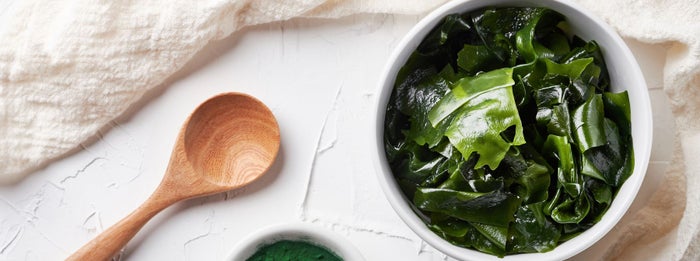
19. Brussels Sprouts
Brussels sprouts are part of the same cruciferous family as broccoli, cauliflower and cabbages. Naturally, they are a very nutritious vegetable but also have some unique components that can boost our immunity.
They contain a type of omega-3 fatty acid (ALA) that can support general health. In addition, Brussels sprouts contain a large amount of Vitamin C that boosts immunity against viruses and works as an antioxidant3.
20. Kimchi
Kimchi is a traditional Korean dish made from fermented vegetables such as napa cabbage or Korean radish.
The bacteria that assist with fermentation of kimchi can act as a natural probiotic for our gut health10. If eaten regularly, this could improve the gut microbiome and therefore support immunity.
Talk To Your Doctor
Myvegan are not making any medical claims within this article. Prior to making dietary or lifestyle changes, consult your doctor, nutritionist or dietitian.
Take Home Message
One of the main ways you can support immunity is through eating a balanced diet that’s rich in plant foods. Some foods stand out above the rest due to their immune boosting properties.
So whether it's chickpeas or kimchi, spinach or seaweed, including these foods in your diet may help give your immune system that extra bit of support.
- Arreola, R., Quintero-Fabián, S., López-Roa, R. I., Flores-Gutiérrez, E. O., Reyes-Grajeda, J. P., Carrera-Quintanar, L., & Ortuño-Sahagún, D. (2015). Immunomodulation and Anti-Inflammatory Effects of Garlic Compounds. Journal of Immunology Research, 2015(401630), 1–13. https://doi.org/10.1155/2015/401630
- Ağalar, H. G. (2019). Elderberry (Sambucus nigra L.). Nonvitamin and Nonmineral Nutritional Supplements, 211–215. https://doi.org/10.1016/b978-0-12-812491-8.00030-8
- Baidya, B. K., & Sethy, P. (2020). Importance of fruits and vegetables in boosting our immune system amid the COVID 19. Food Sci. Rep, 1, 50-55.
- Biswas, S., Islam, F., Imran, A., Tahir Zahoor, Noreen, R., Fatima, M., Syeda Mahvish Zahra, & Mohd Asif Shah. (2023). Phytochemical profile, nutritional composition, and therapeutic potentials of chia seeds: A concise review. Cogent Food & Agriculture, 9(1). https://doi.org/10.1080/23311932.2023.2220516
- Burns, A. M., Zitt, M. A., Rowe, C. C., Langkamp-Henken, B., Mai, V., Nieves, C., Ukhanova, M., Christman, M. C., & Dahl, W. J. (2016). Diet quality improves for parents and children when almonds are incorporated into their daily diet: a randomized, crossover study. Nutrition Research, 36(1), 80–89. https://doi.org/10.1016/j.nutres.2015.11.004
- Casas, R., Estruch, R., & Sacanella, E. (2018). The Protective Effects of Extra Virgin Olive Oil on Immune-mediated Inflammatory Responses. Endocrine, metabolic & immune disorders drug targets, 18(1), 23–35. https://doi.org/10.2174/1871530317666171114115632
- De, L. C. (2020). Edible seeds and nuts in human diet for immunity development. Int. J. Recent Sci. Res, 6(11), 38877-38881.
- Chen, O., Mah, E., Dioum, E., Marwaha, A., Shanmugam, S., Malleshi, N., Sudha, V., Gayathri, R., Unnikrishnan, R., Anjana, R. M., Krishnaswamy, K., Mohan, V., & Chu, Y. (2021). The Role of Oat Nutrients in the Immune System: A Narrative Review. Nutrients, 13(4), 1048. https://doi.org/10.3390/nu13041048
- Dimidi, E., Cox, S. R., Rossi, M., & Whelan, K. (2019). Fermented Foods: Definitions and Characteristics, Impact on the Gut Microbiota and Effects on Gastrointestinal Health and Disease. Nutrients, 11(8), 1806. https://doi.org/10.3390/nu11081806
- Eaton, S. E., Kaczmarek, J., Mahmood, D., McDiarmid, A. M., Norarfan, A. N., Scott, E. G., Then, C. K., Tsui, H. Y., & Kiltie, A. E. (2022). Exploiting dietary fibre and the gut microbiota in pelvic radiotherapy patients. British Journal of Cancer. https://doi.org/10.1038/s41416-022-01980-7
- Gonçalves, A. C., Nunes, A. R., Flores-Félix, J. D., Alves, G., & Silva, L. R. (2022). Cherries and Blueberries-Based Beverages: Functional Foods with Antidiabetic and Immune Booster Properties. Molecules, 27(10), 3294. https://doi.org/10.3390/molecules27103294
- Hewlings, S., & Kalman, D. (2017). Curcumin: A Review of Its’ Effects on Human Health. Foods, 6(10), 92. https://doi.org/10.3390/foods6100092
- Hunter, D. C., Greenwood, J., Zhang, J., & Skinner, M. A. (2011). Antioxidant and “natural protective” properties of kiwifruit. Current Topics in Medicinal Chemistry, 11(14), 1811–1820. https://doi.org/10.2174/156802611796235134
- Jae Gon Kim, Dong, X., Seo Hyun Park, Al Borhan Bayazid, Soo Ah Jeoung, & Beong Ou Lim. (2021). Bioconversion of black rice and blueberry regulate immunity system through regulation of MAPKs, NF-kB in RAW264.7 macrophage cells. Food and Agricultural Immunology, 32(1), 471–481. https://doi.org/10.1080/09540105.2021.1956434
- Mahn, A., & Castillo, A. (2021). Potential of Sulforaphane as a Natural Immune System Enhancer: A Review. Molecules, 26(3), 752. https://doi.org/10.3390/molecules26030752
- McKay, S., Oranje, P., Helin, J., Koek, J. H., Kreijveld, E., van den Abbeele, P., Pohl, U., Bothe, G., Tzoumaki, M., Aparicio-Vergara, M., Mercenier, A., Schols, H., & Albers, R. (2021). Development of an Affordable, Sustainable and Efficacious Plant-Based Immunomodulatory Food Ingredient Based on Bell Pepper or Carrot RG-I Pectic Polysaccharides. Nutrients, 13(3), 963. https://doi.org/10.3390/nu13030963
- Pechinskii, S. V., & Kuregyan, A. G. (2014). The Impact of Carotenoids on Immunity (Review). Pharmaceutical Chemistry Journal, 47(10), 509–513. https://doi.org/10.1007/s11094-014-0992-z
- Tanaka, M., Ishiguro, K., Oki, T., & Okuno, S. (2017). Functional components in sweetpotato and their genetic improvement. Breeding science, 67(1), 52–61. https://doi.org/10.1270/jsbbs.16125
- Tamama, K. (2020). Potential benefits of dietary seaweeds as protection against COVID-19. Nutrition Reviews. https://doi.org/10.1093/nutrit/nuaa126
- V. Sri Sreshtaa, Leslie Rani S., Brundha M. P., Anjaneyulu K. (2021). Dietary Capsaicin and Immune System. Annals of the Romanian Society for Cell Biology, 5809–5822. Retrieved from http://annalsofrscb.ro/index.php/journal/article/view/2113
- Venturi, S., & Venturi, M. (2007). Evolution of dietary antioxidants: role of iodine. Tutto Sulla Nutrizione, 1-25.
- Wright, C. I. (2015). Natural Remedies for the Relief of Cold and Flu Symptoms: The Evidence for Garlic, Onion, Chilli and Chocolate. Journal of Homeopathy & Ayurvedic Medicine, 04(01). https://doi.org/10.4172/2167-1206.1000182
- Zhu, Y., Feng, X., Guo, J., Wang, L., Guo, X., & Zhu, X. (2022). A review of extraction, purification, structural properties and biological activities of legumes polysaccharides. Frontiers in Nutrition, 9. https://doi.org/10.3389/fnut.2022.1021448

